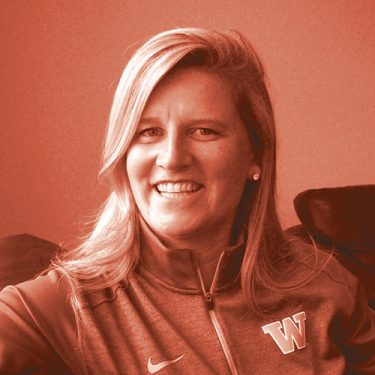Give Me 5: Cassie Pasquariello helps student-athletes find balance
The oldest of six girls, the former basketball player helps student-athletes — from the burliest linebacker to the tiniest gymnast — deal with life, sports and school.
 1. What issues do you deal with?
1. What issues do you deal with?
How life impacts performance and vice versa. If you are a student-athlete and your relationship is falling apart, it will affect your ability to pitch a baseball game and do well in class. We work with athletes struggling with body image and eating disorders, especially in endurance, weight-based, or judged sports like crew coxswains, gymnastics and cross-country.
2. Do many other universities have sport psychologists on staff in athletics?
In 2006, less than 10 schools in the country had one. Today, five other Pac-12 schools do—USC, Stanford, Arizona, Utah and Colorado. We’ve had a sport psychologist position here for five years. And now that the NCAA’s chief medical officer declared mental health as the top health-care issue for student-athletes, many other schools are creating positions.
3. What’s your work like?
I see student-athletes for individual therapy. I also consult with coaches, team physicians, athletic trainers, sports dieticians, strength and conditioning coaches and academic advisers. And I attend sporting events to observe team culture and athletic performance.
4. Did you ever see a sport psychologist when you were competing?
No. I wish I could have.
5. You injured your hand skiing recently and needed surgery.
There was one upside—it made me pause and realize how scary surgery is for our athletes. It definitely made me more compassionate, patient and empathetic.